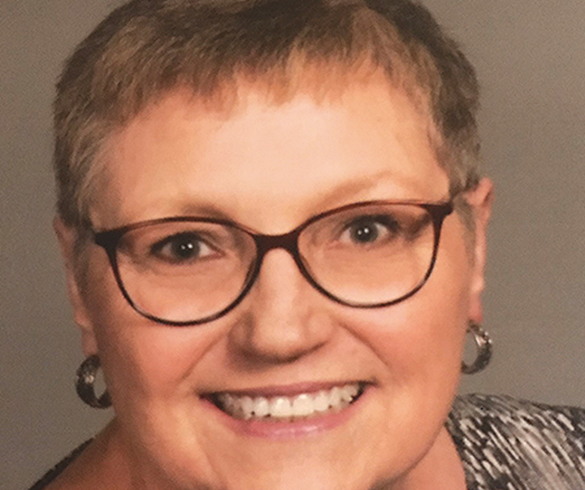
Living with HER2 Positive Metastatic Breast Cancer
In 2018, Terri S., a vibrant 58-year-old insurance underwriter from Kansas, received news many fear – “you have breast cancer.” Similar to many women like her, the diagnosis came as a surprise, as Terri had recently visited her doctor after noticing her skin looked “weird.” As part of the evaluation, her doctor performed a mammogram and breast exam, both of which came back clean.
“So, at that point, I didn’t do anything about it,” Terri said. “I thought it was nothing.”
However, just nine months later, a lump had formed in Terri’s breast. She went back to her doctor for another mammogram, which showed a tumor. After a PET scan and biopsy, Terri was told she had HER2 positive metastatic breast cancer (MBC).
“I was shaken because I know that MBC is incurable,” she said. “I immediately thought, ‘now what?’”
The Importance of Understanding Your Cancer Type
“Despite this bad news, I knew I had to remain positive,” Terri said. “There have been recent innovations in breast cancer therapies that give hope to patients like me.”
After doing some research, she learned not all breast cancers are the same. Some types are defined by the presence of a biomarker, a substance made by a tumor or by the body in response to the presence of cancer. HER2, one such biomarker, is a protein found on the surface of cells. Breast cancer cells with higher-than-normal levels of HER2 are called HER2 positive, which may grow and spread faster than other types of breast cancers, according to the American Cancer Society.
Because of her experience, Terri recommends patients advocate for themselves by asking as many questions as they have. She was determined to learn everything she could about her cancer and available treatments, which included what role the human epidermal growth factor receptor 2 (HER2) protein played in her prognosis and treatment.
The Evolution of Treatment in HER2 Positive Breast Cancer
For decades, HER2 positive breast cancer was associated with poor outcomes and higher mortality rates than other types of breast cancer. However, over the last 20 years therapies known as targeted therapies have significantly changed how patients with HER2 positive breast cancer are treated.
These therapies are designed to target the specific features that make cancer cells different from normal cells, including biomarkers such as HER2. One advancement in HER2 positive breast cancer treatments is the introduction of antibody drug conjugates, which are targeted therapies that are designed to destroy cancer cells.
After working closely with her doctor to learn about her specific cancer and available treatment options, Terri remains positive and confident that she and her doctor can develop a plan to help manage her disease for as long as possible.
“I want people to know that life does go on after a metastatic breast cancer diagnosis,” Terri said. “You just have to live for the moment, take it one day at a time. I know. These are total cliches. But that’s how you do it.”
Terri points out that connecting with others who are diagnosed with MBC and forming a support system with those going through similar journeys has been helpful. In addition, spending time with friends and family, bowling, reading and gardening keeps her going.
“I created a bucket list,” Terri said. “For my next wedding anniversary, I’m planning a trip to Hawaii with all our children and grandchildren. This will be a trip of a lifetime for me and I can’t wait.”
Sponsored by Daiichi Sankyo and AstraZeneca
PP-US-8201a-0854
05/21
Source:
Daiichi Sankyo













